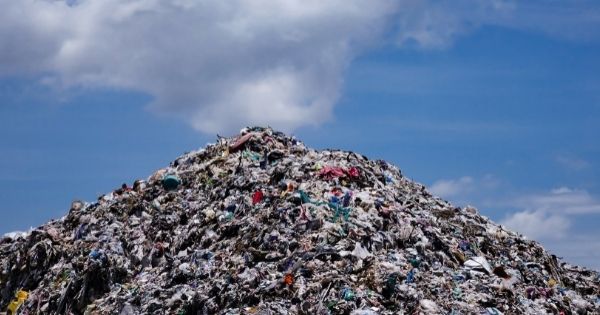South Africans are no strangers to overcoming adversity and challenges, with the ability to rise from whatever is thrown their way, often becoming global role models. Just three years ago the nation was on the verge of the Day Zero water crisis, but through rapid interventions were able to change the way our resources were handled and make the most of a dire situation. What most people are currently unaware of is that in less than 6 months the landfill ban of organic waste in the Western Cape comes into effect. This new policy will require a 50% reduction in the landfilling of organic waste by 2022 and a full 100% reduction by 2027. The dates for introduction of similar bans in the other South African provinces have yet to be finalised.

“We need to rethink waste!” says Melanie Ludwig from The Organics Recycling Association of South Africa (ORASA). “In the Western Cape more than 40% of all waste delivered to landfills is organic waste – including food, paper, wood, fat, abattoir, industrial wastes and compostable packaging. Businesses, municipalities and households need to change their approach to waste management to be ready for the landfill ban coming into effect next year.”
“Organics recycling has the power to significantly reduce the rate of climate change, and it is so easy to achieve” say Ludwig. “Households can easily practice home composting to produce compost that can be used in their own gardens, while on a larger scale and to ensure sustainability, composting at community gardens can grow wholesome food for less fortunate communities. Businesses and big industry need to take a responsible role in ensuring that their organic waste is being properly transported and processed, by contracting waste companies to collect source separated organic waste and process it into compost or other valuable by- products for example biogas or animal feed. Every one of us can make a difference by ensuring all organic materials end up where they should be, back in the soil and not in landfills.”
In the Western Cape more than 3 million tons of organic waste end up in landfills every year, but why does this need to change ? Firstly at an economic level we are rapidly running out of landfill space, something that has become a problem for many municipalities nationally. Added to this is the rising landfill costs that are charged to dump waste at the centres. More importantly the issue of climate change needs immediate action. The production of environmentally harmful methane – a greenhouse gas – during anaerobic decomposition of organic material in landfills and leachate production is a key driving force behind our climate crisis and surface and ground water contamination, and can be addressed by the reduction of organic waste in landfills.
“We need a new approach to all waste streams in South Africa, not just organics,” says Ludwig. “Source separation of waste is required to ensure that each waste stream can be effectively and efficiently recycled, composted or reused!”
While this may seem like a mammoth task, many projects around the world have already proven that change can be made quickly and effectively. With municipalities being responsible for residential waste collection and disposal, responsibility lies with them to change their systems. “Internationally alternate week collections have been found to be a very simple and cost effective solution to collection of source separated waste to enable the correct processing of the material,” says Ludwig. “They simply keep to a once a week, one truck collection, as we currently have here in South Africa, but different waste streams are collected on different weeks. For example week 1 is the collection of landfill waste – items that cannot be recycled or composted; week 2 is food waste collection; week 3 is dry recycling collection – paper, glass, tins etc and finally week 4 would be garden waste collection.”
This would mean storage of waste items for longer, however if they are correctly stored this is not an issue, but simply requires a change in thinking from the public.
Business and industrial waste management is governed by municipal by-laws, the landfill ban will give opportunities to private waste management companies to offer collection and processing services for organic waste, and create new employment opportunities. Business and industry needs to be aware of the ban, which is not the case at present. “Unfortunately Environmental Affairs is currently not enforcing the law, municipalities are required to draw up organic waste diversion plans and many in the Western Cape have not actioned this,” explains Ludwig. “This makes it is extremely difficult for the industry to understand how private businesses can get involved and what role they will be allowed to play.”
For more information on the organic waste landfill ban coming into effect next year and how you can recycle your organic waste please contact Melanie Ludwig of the Organics Recycling Association of South Africa, Tel: 083 696 5138, Email: info@orasa.org.za or visit www.orasa.org.za
For more information on how landfill bans have been implemented internationally please see the following link:
- Vermont landfill ban gradual implementation – https://dec.vermont.gov/waste-management/solid/materials-mgmt/organic-materials
 Kaboutjie SA Mommy Blogs by Lynne Huysamen
Kaboutjie SA Mommy Blogs by Lynne Huysamen




